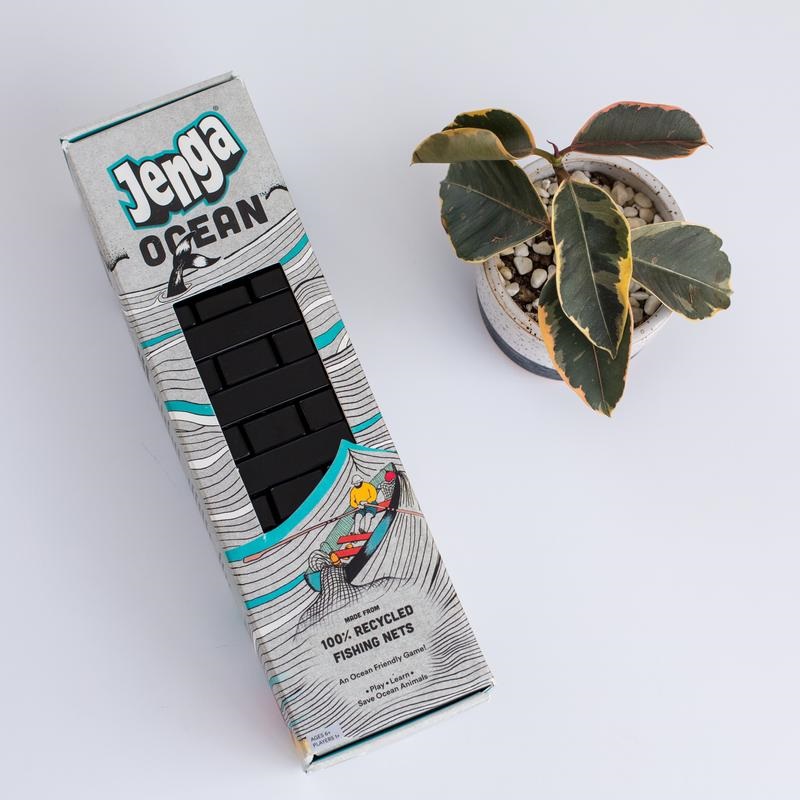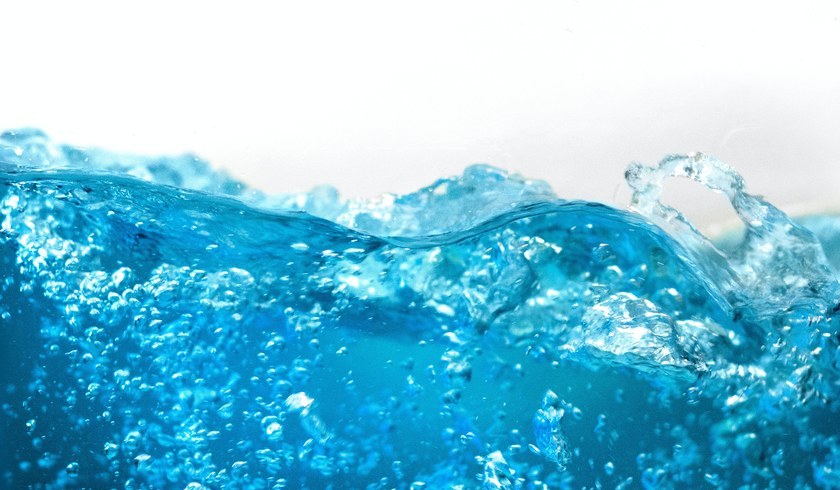16/09/2021
There is still a lot of work to be done. However, there has been a strong focus on eradicating plastics, particularly single-use plastic, through new products and technologies. Sustainable initiatives such as recycling are also making advancements.
In this article, we want to celebrate that progress: the innovative products and processes that have been born, and the needlessly damaging items they have made avoidable.
The environmental toll of plastics is colossal, damaging entire ecosystems and affecting animals, plants and landscapes.
Since the invention of plastic in 1907, we have accumulated 6.3 billion metric tons of plastic waste with only 9% of that being recycled. What is not recycled ends up in landfill or, worse, the environment - one victim being our oceans.
Plastic waste takes hundreds of years to decompose, so when it ends up in the oceans, it breaks up into smaller and smaller pieces we call microplastics. While invisible to the naked eye they are extremely harmful to the ocean and aquatic life. There are 51 trillion pieces of microplastics in our oceans - 500 times the amount of stars in our galaxy.
When these microplastics end up in our oceans, seabirds, sea turtles, fish and even oxygen-producing bacteria consume it. This affects marine animal health and reproductivity. This in turn can impact humans when we eat affected seafood, ingesting microplastics that can lead to health issues.
Similarly, the incineration of waste plastics can also lead to the release of toxic chemicals.
While this alone is catastrophic, humans and the environment are also hit at the beginning of the cycle. Plastic production and decomposition is a cycle and every stage can lead to human exposure to dangerous plastic particles. This cycle begins with the extraction, transportation and refinement of natural raw materials such as crude oil. This leads to the release of various toxic chemicals into the air, resulting in serious health problems such as various cancers, reproductive diseases and impaired immune systems.
Human nature has evolved to focus on the negative, but in recent years, many great strides have been made, from breaking bad habits to bringing new ideas to life! Here are a few.
In 1907 plastic was the innovation, today reducing and replacing it is. Many new companies have emerged using novel technologies to tackle issues from cleaning up plastic waste to transforming it into new products and even removing the need for it altogether.
Here are three of our favourites:
Two global challenges that we face today are the plastic waste pandemic and poor road quality. Road construction company MacRebur is tackling both by adding plastic waste that would otherwise end up in landfills, oceans or incinerators to asphalt used in road construction.
The advantages of this are huge. Not only does it prevent plastics from polluting our oceans, air and soil, but it also extends the lifespan of roads by creating greater durability thanks to plastic’s strong properties.
The biggest source of plastic waste in our oceans is commercial fishing equipment such as fishing lines, ropes and nets. This discarded or abandoned Ghost Gear makes up a massive 52% of plastic pollution in the Great Pacific Garbage Patch - a collection of marine debris in the North Pacific Ocean.
American company Bureo decided to collect discarded fishing nets and recycle them into pellets. These pellets are then used to make new long-lasting products. Industry-leading companies that Bureo have partnered with to use these recycled fishing net materials in their products include Patagonia, Jenga, Carver Skateboards and Trek Bikes.
 Jenga Ocean board game made from 100% recycled fishing nets
Jenga Ocean board game made from 100% recycled fishing nets
Plastic bottles are one of the main sources of plastic waste with 500 billion bottles being used every year. Not only do these bottles take around 450 years to degrade but 90% of them aren’t even recycled.
To combat this problem, here at Zip we have developed a wide range of drinking water solutions that are energy efficient and eliminate the need to buy single-use plastic bottled water. With a reusable bottle, you have the opportunity to save an average of 150 water bottles per year, while also keeping yourself hydrated with filtered water.
Common tap water contaminants include microplastics, heavy metals like mercury and chlorine and bacteria. Bottled water isn’t free from contaminants either, with many bacterial species surviving during production and 93% of popular global water bottle brands containing microplastics.
Our HydroTap Touch Free Wave guarantees safe drinking water by boasting 0.2 micron MicroPurity filtration technology, making it 25 times more effective than a standard water filter jug. This means that Zip water is free from contaminants like microplastics, keeping you safe and happy with pure-tasting, filtered water.
 Zip HydroTap Touch Free Wave
Zip HydroTap Touch Free Wave
While plastic reuse and recycling is a growth practise and industry, so too is the plastics scrapheap filling up with avoidable practices and items.
As mentioned, plastic bottles are one of the main pollutants of our oceans and landfill. From 1996 to 2010 US plastic bottled water sales in the US went up by 1,400%. Combatting a similar rise, the EU has taken their recycling efforts from 26% in 2006 to 42% in 2016.
Better still, technologies such as Zip Water drinking water taps - including chilled water dispensers - and reusable hot drink cups like KeepCup and hot/cold bottles such as Chilly’s are helping to eradicate plastic bottles.
Many people around the world are waking up to the importance of protecting our environment from plastic waste - something that wasn’t a priority during the surge in plastic use in the 20th century. To determine the importance of sustainability and reducing single-use plastic waste in the workplace, we interviewed 227 facilities managers across the UK. 72% of FMs said that reducing single-use plastic waste fell into their sustainability strategy and 93% felt the industry could do more to reduce plastic waste. Take a look at our e-book to read more about reducing plastic waste and leaving it in the past.
Plastic wrap is widely used at home and by businesses from industry to retail. Since it was made into a consumer product in 1949, cling film has become a kitchen staple. However, as microplastics leaching into food has become recognised as a health risk and the wastefulness of this single-use item has been highlighted, some companies have developed sustainable and eco-friendly alternatives for storing food.
The Beeswax Wrap Co. produces eco-friendly wraps made of cotton, beeswax and natural oils. These reusable wraps can last up to a year, reduce the amount of toxins going into the soil, the amount of waste in landfills and are also biodegradable - making them easily compostable. They also keep your food fresher for longer than cling film as it lets the food breathe - unlike cling film which keeps heat in and causes condensation.
The positive environmental impact of just The Beeswax Co. is huge, with waste being reduced by 20% in 2020. So, make the switch to a sustainable and biodegradable method of wrapping and storing food to save 125 metres of cling film from ending up in landfills per year.
When the UK government launched the 5p plastic bag charge, the initiative saw sales decrease by 95% - from 7.6 billion to 564 million bags. Now, from May 21st 2021, this has increased to 10p, in a bid to bring £331 million to the UK economy and reduce overall carrier bag usage by a further 21%.
You can support the decrease in plastic bag use by switching to a more environmentally friendly alternative.
Unsustainable and undegradable, plastic grocery bags pose a great risk to the environment in terms of plastic pollution. Carry a canvas (or ‘tote’) bag in your backpack, car and desk and never be caught short - avoiding having to buy single-use plastic bags. They can also be easily washed and reused for years, saving on average 150 plastic bags per year per person.
Now that we know what a detriment plastic is to the environment and our health, reducing plastic waste should be a goal that we all work towards year round. Sustainable practice is now more important than ever, so begin by implementing these eco-friendly habits to support the environment and your health, as well as eradicate plastics!
Talk to us about your next project, request a brochure or arrange a full product demo with one of our team.
